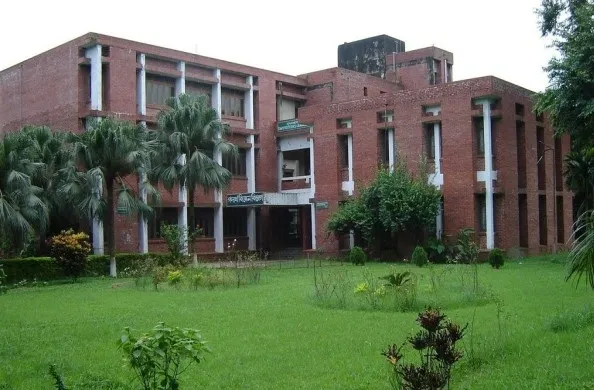Why Are Bangladesh University Students Calling for the Renaming of Bangabandhu Hall?

Synopsis
Key Takeaways
- Students are advocating for the restoration of Bangabandhu's name.
- Political changes prompted a reevaluation of university hall names.
- Renaming efforts reflect broader historical and cultural discussions.
- The removal of cultural symbols has sparked debate and criticism.
- Connection between past and present is crucial for national identity.
Dhaka, June 18 (NationPress) A significant group of students from Jahangirnagar University in Bangladesh presented a memorandum to Vice-Chancellor Mohammad Kamrul Ahsan on Wednesday, advocating for the reinstatement of the name Bangabandhu Sheikh Mujibur Rahman Hall. According to reports from Bangladesh's prominent Bengali newspaper Prothom Alo, following the removal of former Prime Minister Sheikh Hasina last year, there were calls to rename various university establishments previously named after members of the Hasina family. As a result, on February 5 of this year, students were instructed to remove nameplates from four residential halls, and the university syndicate was tasked with assigning new names.
In a response, on March 17, the syndicate annulled the names of Sheikh Russell Hall, Bangabandhu Sheikh Mujibur Rahman Hall, Sheikh Hasina Hall, and Bangamata Sheikh Fazilatunnesa Mujib Hall.
Reports indicate that the authorities recently sought proposals for new names from various university stakeholders for the renaming process. As part of this initiative, the cultural organization 'Jahangirnagar Cultural Alliance' submitted the memorandum to the Vice-Chancellor, advocating for the restoration of the name Bangabandhu.
"The 1971 Liberation War and the July Movement arise from the same spirit of liberation. The years 1971 and 2024 are not adversaries but rather reflections of the same quest for freedom. Thus, the malicious attempt to erase the legacy of a pivotal figure like Bangabandhu, under whose guidance Bangladesh achieved independence in 1971, and to pit '71 against '24 is indicative of an autocratic mindset," the memorandum asserted.
In another incident on the same day, 'Anjali Loh Mor'—a sculpture unveiled in January 2024 at Jatiya Kabi Kazi Nazrul Islam University (JKKNIU) in Trishal during the tenure of former Prime Minister Sheikh Hasina—was removed by the university administration. This decision sparked substantial backlash as university students claimed it represented a vendetta, according to local media.
The sculpture was constructed with a budget of four crore for enhancing the aesthetics of the campus ponds.
"The removal of this sculpture, intended to beautify the university's sole pond, is profoundly disheartening. It was among the most visually appealing features on campus. The administration should have considered preservation or redesign instead of total demolition," remarked a student who chose to remain anonymous.









